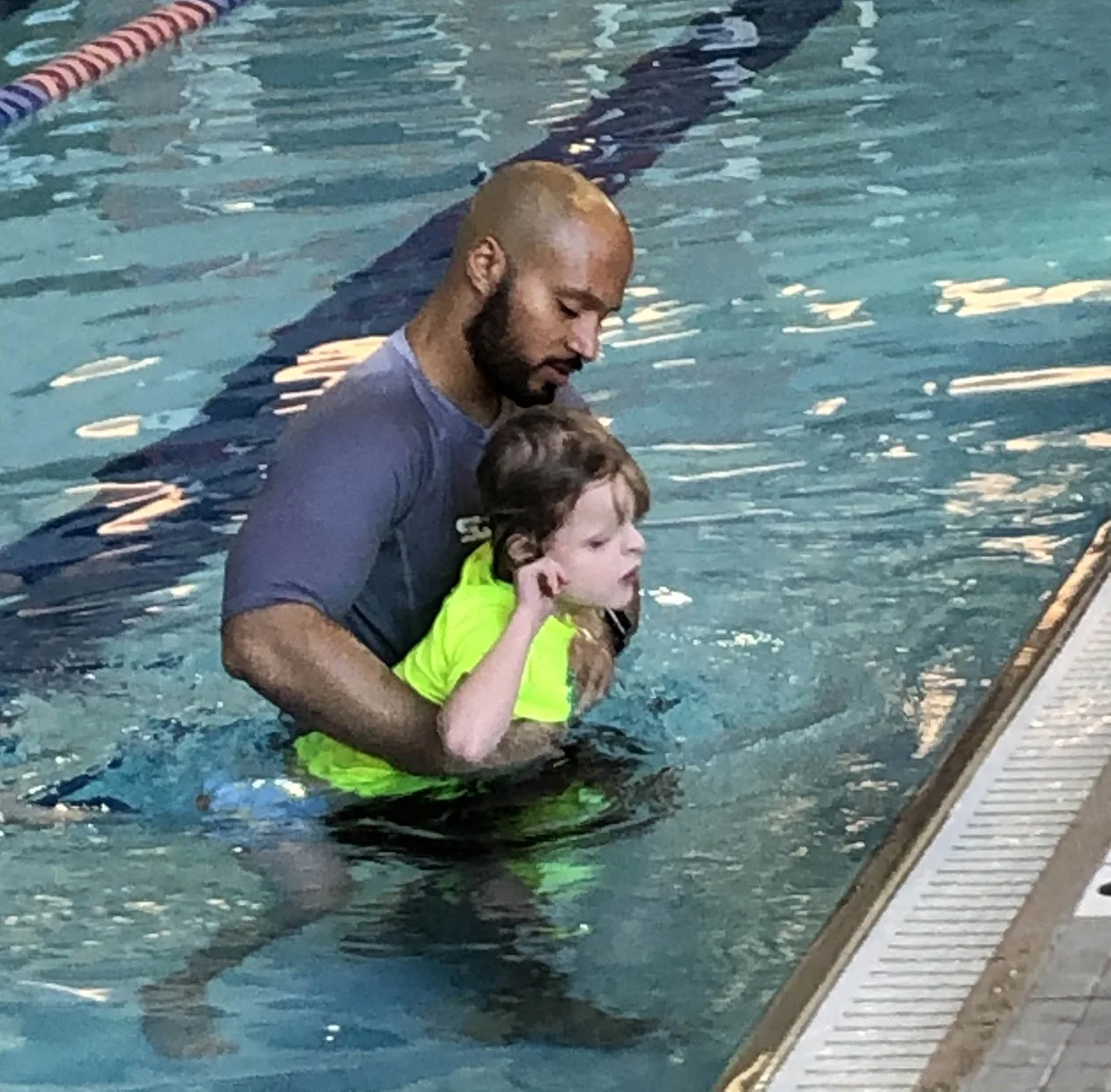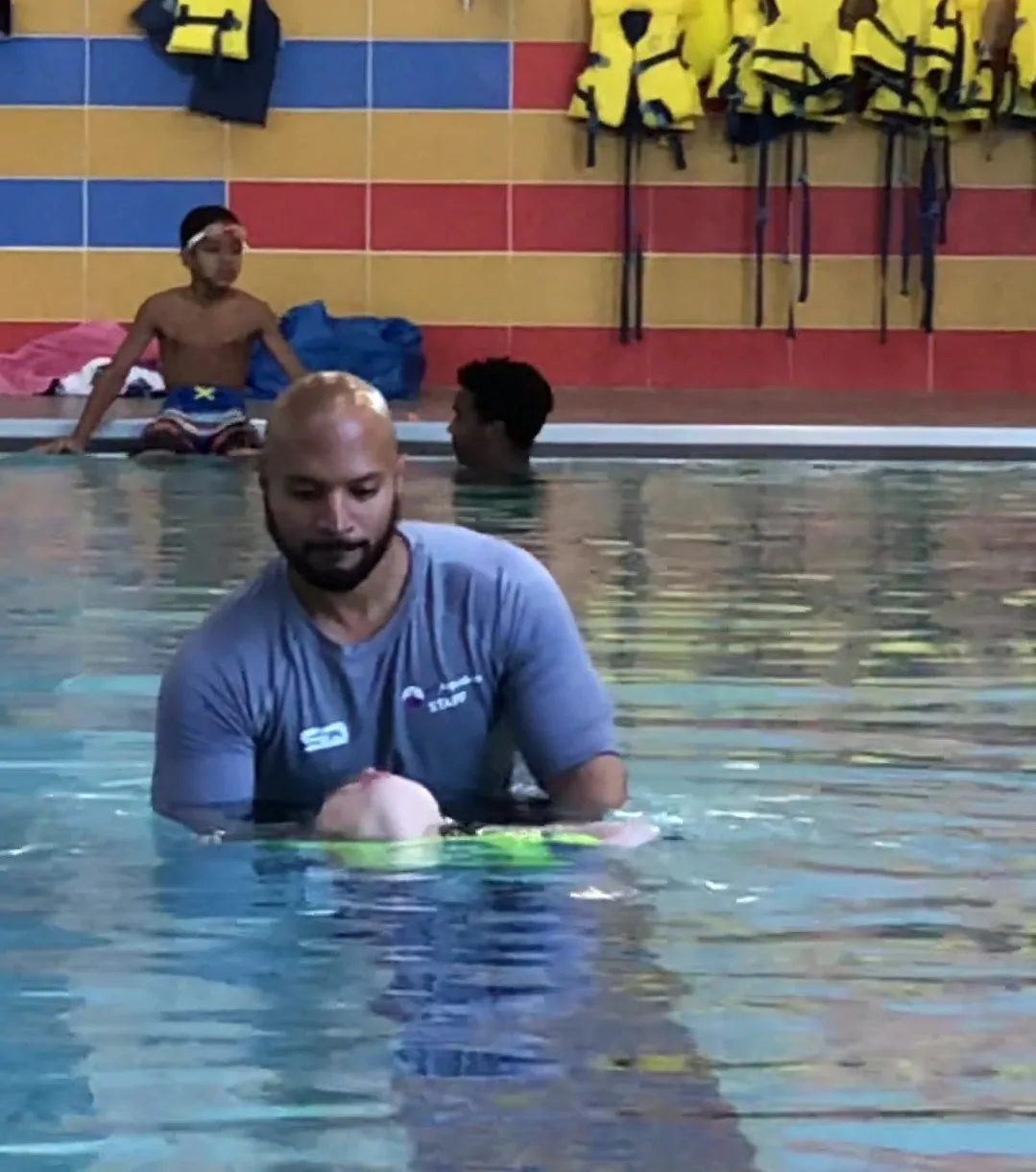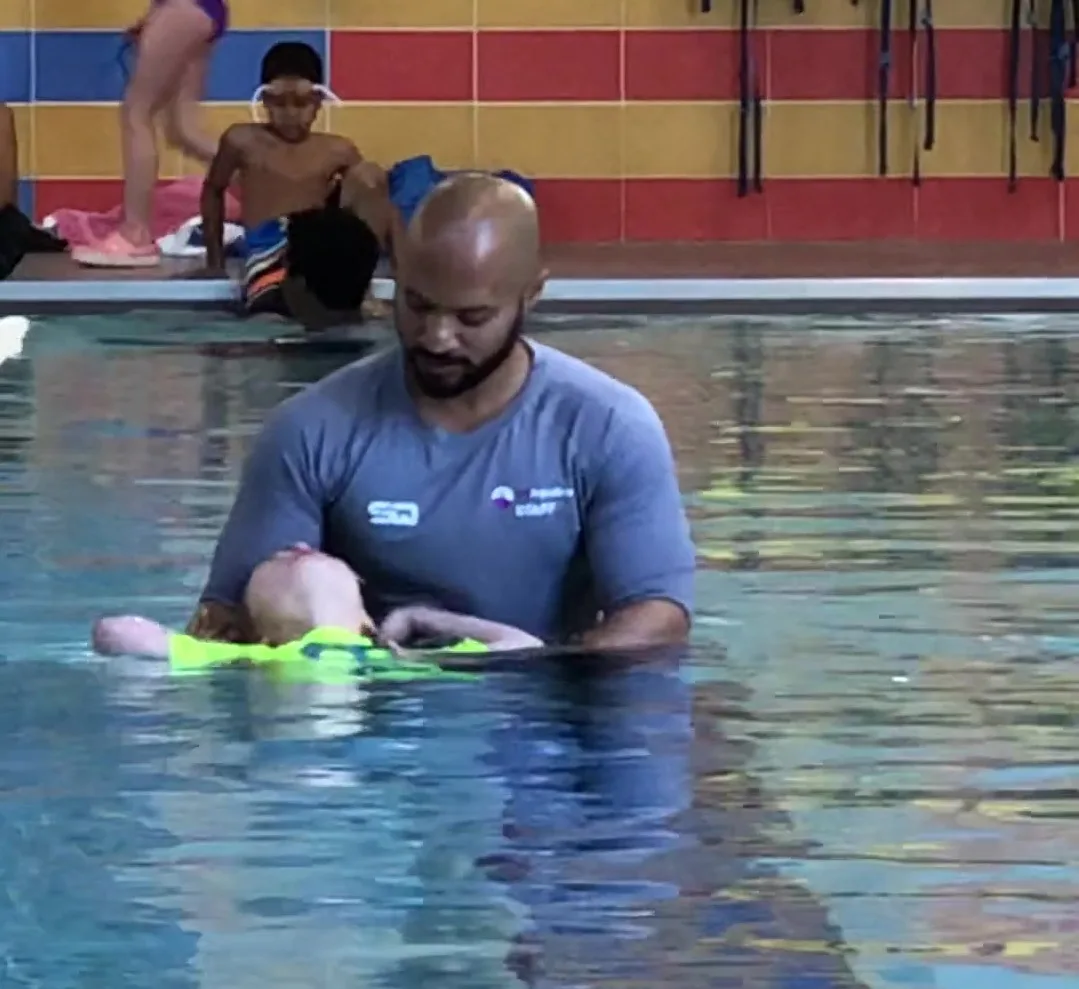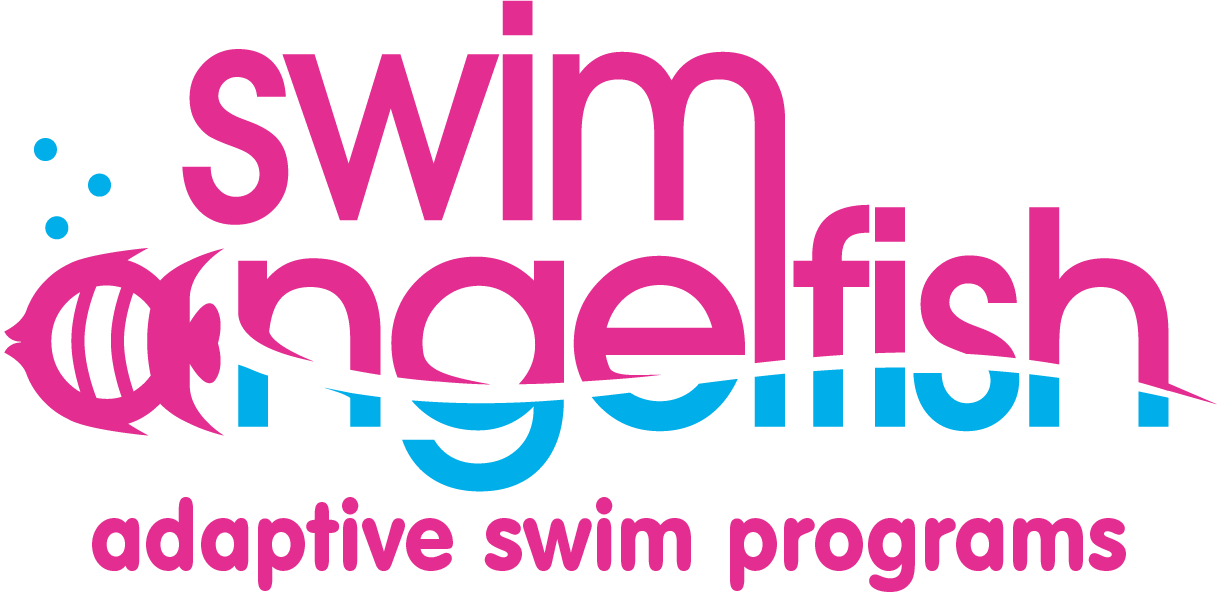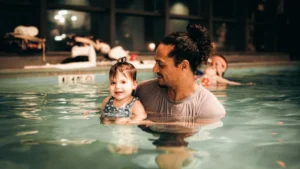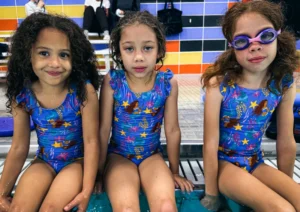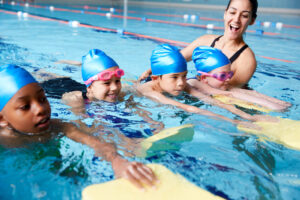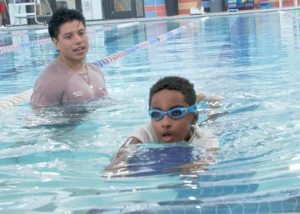What to Look for in an Adapted Swimming Program
The benefits of adapted swimming or adaptive swimming for individuals with disabilities are often underestimated. Adaptive swimming opens up a world of possibilities, improving physical fitness, mobility, self-esteem, and independence.
Finding the right program, however, is crucial to unlocking these benefits and fostering a lifelong love of swimming.
What Is Adaptive Swimming?
Adaptive swimming, or “adaptive aquatics,” involves specialized swim instruction for individuals with disabilities. It aims to provide a safe, comfortable, and inclusive environment where participants can develop aquatic skills, gain confidence, and embrace the joys of swimming.
Who Benefits from Adaptive Swimming?
Adaptive swimming benefits individuals who have:
-
- Autism spectrum disorder
- Trauma
- Anxiety
- Delays
- Down syndrome
- Sensory issues
- Fragile X syndrome
Adaptive swimming lessons are designed to work with your child’s individual needs, making classes accessible and inclusive for a wide range of people.
5 Benefits of Adaptive Swimming for People with Disabilities
Adapted swimming programs ensure swimming—and all the incredible benefits—are available to everyone.
1. Improved Physical Fitness
Swimming engages various muscle groups, promoting cardiovascular health and strength. This benefits overall physical well-being.
2. Increased Mobility
The buoyancy of water reduces the impact on joints. This makes swimming lessons an excellent low-impact exercise for individuals with mobility challenges.
3. Reduced Stress
Water’s soothing properties promote reduced stress and anxiety through:
-
- Buoyancy and weightlessness
- Sensory stimulation
- Mindfulness and focus
- Release of endorphins
- Social interaction
- Break from routine
- Mind–body connection
4. Improved Self-Esteem
Achieving swimming milestones boosts self-confidence and empowers individuals to overcome challenges.
5. Increased Independence
Mastering swimming skills enhances a sense of autonomy in and out of the water.
Different Styles of Adaptive Swimming Programs
Not all adaptive swimming programs are conducted in the same way. Here are a few common ways they’re structured.
One-on-One Lessons
This offers personalized attention from an instructor tailored to the participant’s specific needs and abilities.
Group Classes
A social, interactive setting encourages peer support and camaraderie among participants.
Aquatic Therapy
These therapeutic exercises in water aid in physical and cognitive rehabilitation.
How to Find the Right Adaptive Swimming Program
Follow these three steps to ensure you’re selecting the right program for your child.
Consider your child’s individual needs and goals.
-
- Identify specific goals your child wishes to achieve through adaptive swimming.
- Assess any specific requirements or accommodations necessary for their participation.
Research different programs in your area.
-
- Use online resources, community centers, and local disability organizations to find adaptive swimming programs.
- Review previous participants’ testimonials and reviews to gauge the program’s quality and effectiveness.
- Talk to other parents about their experiences with adapted swimming programs. Ask for their recommendations.
Visit the program in person before enrolling.
An in-person visit gives you the opportunity to evaluate:
-
- Facilities
- Instructor qualifications
- How coaches interact with adaptive swimmers
- Overall atmosphere
You can gauge your child’s comfort level during your visit and determine if it fits your family well.
What to Look for in an Adaptive Swimming Program
These four qualities are essential to a high-quality adaptive swim program.
Qualified instructors
Look for instructors with specific training and certification in adaptive swimming for individuals with disabilities. This indicates they have the necessary knowledge and expertise to adapt their teaching methods.
Seek instructors who have experience working with individuals with various disabilities. Experienced instructors are better equipped to address different challenges and to tailor their approach to meet each participant’s unique needs.
Safe, supportive environment
Check if the swimming pool and surrounding facilities are accessible for individuals with mobility challenges. This ensures everyone can participate comfortably.
Look for a program that fosters an inclusive, supportive environment where participants feel welcomed and accepted regardless of their abilities.
Positive reinforcement and encouragement can significantly impact participants’ confidence and enjoyment of the experience.
Curriculum tailored to individual needs
Prioritize programs that offer these approaches:
-
- Individualized assessments. A quality adaptive swimming program should conduct individual assessments for each participant to understand strengths, weaknesses, and specific goals.
- Personalized goal-setting. The curriculum should be designed to address each participant’s goals, whether it’s building water confidence, improving stroke techniques, or achieving specific swimming milestones.
- Adaptive teaching techniques. The program should use adaptive techniques and equipment to accommodate varying abilities. This might include using flotation devices, modified stroke techniques, or assistive devices to help participants progress their swimming skills.
A flexible schedule that accommodates your child
Look for programs that offer a range of class times and days. This provides flexibility when fitting swimming lessons into your child’s schedule.
Consider whether you prefer a seasonal program, such as a summer camp, or a year-round program that encourages progress and skill development throughout the year.
Adaptive Swim Lessons Are Coming Soon to WeAquatics
Finding the right adaptive swimming program is one way to unlock the full potential of individuals with disabilities. The physical and emotional benefits of adaptive swimming can be profound, promoting a healthier, more fulfilling life. By evaluating different adaptive swim programs and considering your child’s unique needs, you ensure they embark on a remarkable journey of empowerment.
Recently, fifteen WeAquatics instructors successfully completed all five levels of the prestigious Swim Angelfish’s Swim Whisperer® program. This accomplishment earned them well-deserved certifications in adaptive swimming instruction.
At WeAquatics, we are thrilled to announce we will soon be introducing adaptive swimming lessons to our offerings. This reaffirms our commitment to serving and embracing the diverse needs of our community. With this exciting addition, we aim to create a more inclusive, supportive environment where individuals of all abilities can experience the joy and benefits of swimming.

